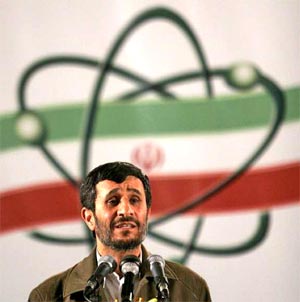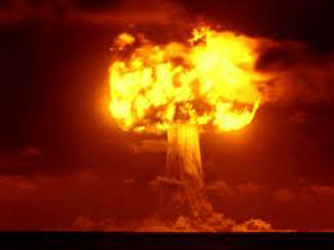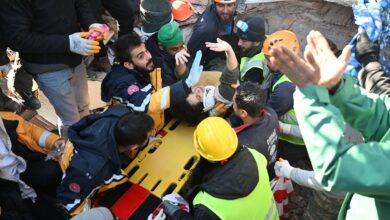Iran : Assasinated scientist’s killer have used U.N. info

Iran claims, assailant who slayed Iranian nuclear scientist in Tehran last week may have obtained information for assasination from United Nations.
Tehran – Iran charged that assassins who killed an Iranian nuclear scientist in Tehran last week may have used information obtained from the United Nations (UN).
Iran nuclear scientist Mostafa Ahmadi-Roshan, 32, was assasinated by a motorbike hitman who put a magnetic bomb under his car on a street in Tehran during the morning rush hour on January 11. Iran, at odds with Western governments over its nuclear program, has accused U.S. and Israeli agents of being behind the murder.
Iran Nuclear Program feared by West
Iran’s deputy U.N. ambassador Eshagh Al Habib stated there was a “high suspicion that terrorist circles supporeted by Western governments and Israel have obtained the intelligence from United Nations officials and databese, including the sanctions list of the UN Security Council and interviews carried out by IAEA (International Atomic Energy Agency) with Iran’s nuclear scientists, to identify and carry out their diabolical acts.”
Un Sanctions on Iran involving Nuclear Scientists
Mostafa Ahmadi-Roshan recently met with IAEA inspectors, Al Habib told the Security Council, “a fact that indicates that these U.N. agencies may have played a role in leaking information on Iran’s nuclear program regarding nuclear facilities and scientist.”
The Iranian official also accused the world body of failing to observe secrecy over its inspections of nuclear facilities.
U.N. spokesman Martin Nesirky announced UN was looking into the allegations of information leak. The Vienna-based IAEA is the U.N. nuclear watchdog and has played a key role in trying to determine whether Tehran’s atomic program has military ambitions.
The killing of Ahmadi-Roshan was the fifth attack occurred at broad daylight in 2 years on technical experts involved in Iran’s nuclear program, which Western countries claim is aimed at producing an atomic weapon but Tehran government firmly asserts nuclear program is for peaceful purposes.
One of the attacks occurred exactly two years earlier, on 11 January, 2010, killing scientist Masoud Ali Mohammadi. The current head of Iran’s atomic organisation, Dr Fereydoun Abbasi, escaped another such attempt in November 2010, getting out of his car with his wife just before the attached bomb exploded. Those attacks were viewed by Iranian officials as assassination operations carried out by Israel’s Mossad Intelligence service, possibly with help from US counterparts.
The United States has denied involvement in the assasination and has condemned it, as has U.N. Secretary-General Ban Ki-moon. An Israeli minister also stated this week that Iran’s charges of Israeli involvement were “completely baseless.”
The Security Council has imposed four rounds of sanctions on Iran over its nuclear activities. Its list of sanctioned individuals does not include Ahmadi-Roshan.
[adrotate banner=”22″] [adrotate banner=”26″]

